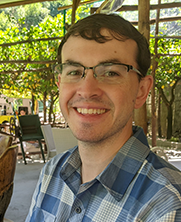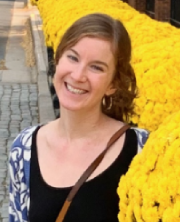Rheumatology Fellowship Training Program
The Goal of the University of Minnesota Medical Center Rheumatology Fellowship Training Program of today is to produce highly competent clinical rheumatologists who, aligned with trainee career goals and with the needs of the community, become scholarly academic educators, productive physician scientists, and/or compassionate community providers. This program fosters a culture of excellence and professionalism, a climate of continuous discovery and curiosity, and promotes cultural sensitivity and respect for diversity.
The University of Minnesota (UMN) Rheumatology Fellowship Training Program is a 2-year clinical training program. For individuals whose goal is to become an academic rheumatologist, opportunities for additional years of research training exist in disciplines such as public health and health administration, and basic science/immunology.
The program has graduated thirty-nine Fellows, eleven of whom have pursued academic careers. Since our first accreditation in 1987, our ABIM exam pass rate has been 100%. The program was fully accredited in 2005 and again in 2011, both times with no citations. Additionally, the program accepts J-1 visas.
Training Sites
Hennepin Healthcare is a comprehensive academic medical center and public hospital located in the heart of Minneapolis. Unique to Hennepin Healthcare are monthly joint Radiology and Rheumatology trainee Imaging seminars, the metabolic bone disorder clinic, and a prevalence of patients with SLE in immigrant Asian populations and the younger minorities with severe nephritis. The patient case-mix also favors rheumatic complications of hemodialysis and renal transplantation, complications of HIV infection, complications of hepatitis C, crystal-induced arthritis. Inpatient consultation services provide Fellows with experience evaluating and caring for a highly diverse multi-ethnic population with complex multi-system illness and social service issues.
University of Minnesota Medical Center (UMMC) is a tertiary care referral hospital and hospital based clinic for the Fairview Health System for the Upper Midwest. As such, the patient population it serves is diverse; disease states include common (psoriasis, temporal arteritis) and less common (multiple sclerosis, CNS vasculitis) ones and patients with a range of no to multi-organ (eg. transplant) co-morbidities.
Clinics include general rheumatology and diagnosis-specific clinics, such as:
- Joint-based rheumatology alongside orthopedics: crystal arthropathy, spondyloarthropathy, regional joint pain, degenerative arthritis, rheumatoid arthritis, etc.
- Systemic Lupus Erythematosus (SLE) and evaluation of positive ANA
- Scleroderma
- Vasculitis
- Early Inflammatory Arthritis
- Rheumatology-Dermatology
Clinics in Pediatric Rheumatology and Orthopedics and instruction in Bone Densitometry interpretation are available. Patient mix in Orthopedic clinics includes individuals with sports and athletic-related problems, fractures, and non-sports related trauma and evaluation of patients for arthroplasty and bone tumors.
Minneapolis VA Healthcare System
The Minneapolis VA Health Care System (MVAHCS) is a modern facility serving a large veteran regional referral population. As such, Fellows develop familiarity with the epidemiology, pathogenesis, diagnosis and prevention, and treatment of rheumatic diseases frequently encountered in the VA patient population, especially systemic vasculitis, surgical and medical complications of rheumatoid arthritis and spondyloarthropathies, crystalline disorders. A clinic designated for joint aspirations and use of the musculoskeletal ultrasound is a highlight of the VA block rotation.
Regions Hospital and Health Partners Specialty Clinic is one of the top 55 urban hospitals nationwide and the only urban hospital in Minnesota to be named a Leapfrog Top Hospital in Minnesota. A Level 1 Trauma Center, it serves patients referred from the Midwest and the rest of the United States. The Inpatient Rheumatology Teaching Service is highly sought after for the opportunity to learn while caring for a high volume of patients with lupus, the vasculitides and complex multisystem illnesses. There are ten experienced teaching faculty. The health care system has been recognized nationally for its emphasis and leadership in quality improvement. The Health Partners Institute for Education and Research supports trainees in their research endeavors.
Rotations
-
Clinic based learning is complemented by inpatient consultation/team leadership/educator experience; these experiences stimulate system quality improvement and study. To comply with ACGME duty hour rulings, Fellows take call with Faculty every fourth weekend
-
Breadth of learning is complemented by focused learning: weekly required Fellow continuity clinics, general rheumatology clinics, and condition-specific clinics (scleroderma, lupus, joint aspiration, bone metabolism, vasculitis, early inflammatory arthritis, rheumatology-dermatology) comprise the clinic "menu".
-
Care of the general rheumatology patient population is complemented by exposure to our diverse clientele (Hmong, Somali, Russian, Veterans)
-
Experiential learning is complemented by self study and learning at didactics/conferences
-
Clinical training is complemented by research experience. Over the two year training period, Fellows conduct mentored research of their choosing over a total of four months. Abstract presentation at the Annual University of Minnesota Department of Medicine Research Conference and the Annual American College of Rheumatology (ACR) Scientific Meetings are expected deliverables. During this protected research period, Fellows continue to participate in weekly continuity clinics, conference/didactic seminars, and weekend call.
Regardless of the setting or learning activity, integration of basic science, immunology, and pathophysiology into clinical rheumatology, pharmacology, pathology, and radiology is promoted in addition to the promotion of development in all six ACGME core competencies.

First Year Fellows
Vinay Kumar Thallapally, MBBS
Medical School: Gandhi Medical College, Bhopal, India
Residency: Creighton University School of Medicine, Omaha, NE
About me:I am excited to be a part of the University of Minnesota Rheumatology fellowship program. I am grateful to be a part of this specialty when our understanding of autoimmune disease is rapidly expanding. My areas of interest include Seronegative spondyloarthritis and interstitial lung disease.
I look forward to a fellowship filled with learning opportunities and I am excited to work with our experienced faculty and staff. My hobbies are traveling and
watching history documentaries. I am also hoping to learn cross-country skiing and ice fishing this winter.

William "BJ" Valente, MD, PhD
Medical School: University of Washington School of Medicine, Seattle, WA
Residency: University of Minnesota Internal Medicine Residency, Minneapolis MN
About me:
After nearly a decade away from Minnesota pursuing my MD & PhD through the University of Washington, I’m excited to be in the Twin Cities for my clinical training through the University of Minnesota Rheumatology Fellowship! I am passionate about understanding the intricacies of the immune system in rheumatologic diseases and aspire to familiarize myself and my patients with the options to best control their conditions. During my fellowship, in concert with my co-fellows and Rheumatology faculty, I hope to explore further the fast-developing field of clinical Rheumatology.

Second Year Fellows
Suresh Kumar, MBBS
Medical School: Chandka Medical College, Liaquat University of Medical and Health Sciences, Jamshoro, Sindh, Pakistan
Residency Program: AMITA Health Saint Joseph Hospital, Chicago, Illinois
About Me: I am excited for an amazing career in Rheumatology. The breadth of clinical exposure even in the first weeks of fellowship has been incredible. I've found phenomenal mentors who are renowned experts in their fields but also very dedicated to mentoring trainees. Beyond the hospital, I love living in a metropolitan city, where there is always a lot of vibrancy and a lot to explore!

Lizzy Nelson, MD
Medical School: University of Minnesota Medical School, Minneapolis, MN
Residency Program: Hennepin Healthcare Internal Medicine Residency Program, Minneapolis, MN
About me: I couldn’t be happier to be a part of the University of Minnesota Rheumatology Fellowship program. Our ever-growing understanding of the immune system, research in the genetic underpinnings of diseases, and expanding targets for biologic therapies, make this an exciting time to join the field of rheumatology. I look forward to building relationships with patients and learning how to best serve them and my broader community. Outside of the hospital, I love to spend time with friends and family, be outside, and find new restaurants with my husband.

3rd Year Fellow
Alison Lerman, MD
Medical School: Tulane University School of Medicine
Residency Program: University of Minnesota Internal Medicine and Pediatrics Residency, Minneapolis MN
About Me: I'm thrilled to be joining this dynamic and exciting field as a combined adult and pediatric rheumatology fellow. My career interests include the transition of pediatric patients into adult rheumatology practices, musculoskeletal ultrasound, delivery of rheumatologic care to underserved populations, and the application of integrative medicine concepts in rheumatic disease. Growing up in Idaho instilled a life-long love of the outdoors, and it's been great to explore the beautiful terrain of Minnesota with my husband, daughter and dog. My other interests include baking/cooking, gardening, and travel.
Administrative Office
Fellowship Coordinator
Kelly Grahek
rheumadm@umn.edu
Feedback & Evaluation Methods
Fellows receive feedback often and in multiple ways. (Example Below)
- An entry multiple choice test of knowledge and application.
- Quarterly electronic competency based E-value®s.
- 360 reviews completed by clinic staff and patients.
- Yearly NBME/ ACR arranged ITE scores and national percentile rankings.
Semi-annually, annually and upon completion of the Program, the Program Director personally delivers summative evaluations to the Fellows. Every three months, Fellows complete confidential evaluations of Faculty and annually evaluate Program elements and the Curriculum. Fellow contribution to Program improvement takes place in the forms of attendance at the Continuity Clinic specific operations meetings, and membership with Faculty on the Education Oversight Committee and the Program Director Feedback Club.
This program fosters a culture of excellence and professionalism, a climate of continuous discovery and curiosity, and promotes cultural sensitivity and respect for diversity.